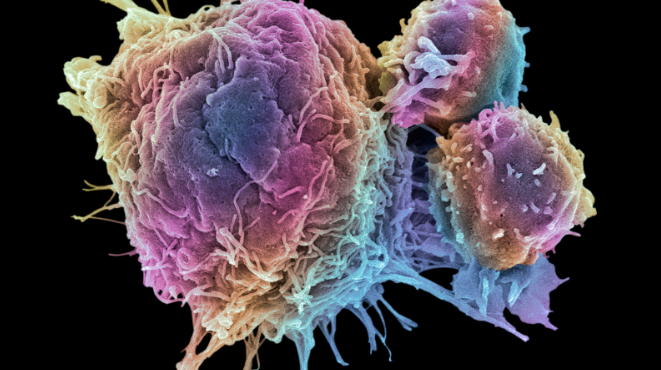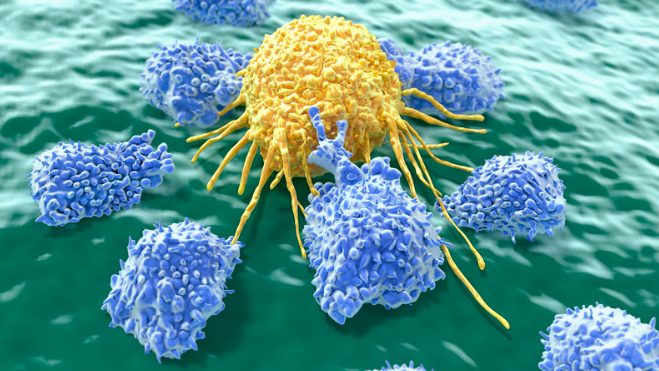As an expert in immunology, I’ve often been asked about the fascinating world of lymphocytes and their role in our immune system. Today, I’ll be diving into the topic of how a lymphocyte exhibits immunocompetence. Lymphocytes are a type of white blood cell that play a crucial role in our body’s defense against pathogens. Understanding how they develop and function is key to understanding our immune response.
When it comes to immunocompetence, lymphocytes undergo a complex process of maturation and activation. It starts in the bone marrow, where precursor cells differentiate into B cells or T cells. B cells mature in the bone marrow, while T cells migrate to the thymus for further development. During this maturation process, lymphocytes acquire specific receptors that allow them to recognize and respond to antigens. This is a crucial step in their ability to mount an effective immune response.
Once lymphocytes have acquired their antigen receptors, they are considered immunocompetent. This means that they are capable of recognizing and responding to a specific antigen. B cells recognize antigens directly, while T cells require antigen presentation by other cells. When an immunocompetent lymphocyte encounters its specific antigen, it becomes activated and initiates a cascade of immune responses.
The Role of Antigen Receptors on Lymphocytes
When it comes to understanding how a lymphocyte exhibits immunocompetence, the role of antigen receptors cannot be overlooked. These receptors are the key players in the recognition and response to specific antigens. Here’s how they work:
- Antigen Receptor Diversity: Lymphocytes possess a diverse repertoire of antigen receptors, allowing them to recognize a wide range of antigens. This diversity is achieved through a process called V(D)J recombination, where different gene segments are rearranged during lymphocyte development. This remarkable ability ensures that lymphocytes can respond to the numerous antigens they may encounter.
- B Cell Receptors (BCRs): B cells express B cell receptors (BCRs) on their surface. BCRs are membrane-bound antibodies that are specific to a particular antigen. These receptors consist of two heavy chains and two light chains, and their variable regions determine antigen specificity. When a BCR binds to its specific antigen, the B cell is activated, leading to antibody production and the initiation of an immune response.
- T Cell Receptors (TCRs): T cells, on the other hand, express T cell receptors (TCRs) on their surface. TCRs consist of alpha and beta chains, and like BCRs, they also have variable regions that determine antigen specificity. TCRs can only recognize antigens that are presented by specialized antigen-presenting cells (APCs), such as macrophages or dendritic cells. Once a TCR recognizes its specific antigen, the T cell is activated and can carry out its effector functions.
Antigen receptors on lymphocytes are essential for their immunocompetence. BCRs and TCRs allow lymphocytes to recognize and respond to specific antigens, ensuring a targeted immune response. The diversity of antigen receptors and their ability to bind to antigens play a crucial role in the functioning of our adaptive immune system.

How Does A Lymphocyte Exhibit Immunocompetence?
As an expert blogger, I am here to shed light on the fascinating topic of how lymphocytes exhibit immunocompetence. Lymphocytes, a type of white blood cell, play a crucial role in our immune system by recognizing and responding to specific antigens. Let’s dive into the process and explore the mechanisms behind their remarkable abilities.
At the core of lymphocyte immunocompetence lies V(D)J recombination. This process allows lymphocytes to generate a diverse array of antigen receptor structures. Through the rearrangement of gene segments, lymphocytes create unique antigen receptors that are capable of recognizing a wide range of potential threats. This genetic shuffling is what gives lymphocytes their incredible specificity in identifying antigens.
Once a lymphocyte encounters an antigen that matches its specific receptor, a remarkable event occurs. The lymphocyte binds to the antigen, initiating a cascade of events that activate the immune response. This activation leads to the proliferation and differentiation of effector cells, such as B cells and T cells. B cells produce antibodies that neutralize antigens, while T cells directly kill infected cells. This coordinated effort between different types of lymphocytes ensures an effective immune response.
Moreover, a subset of activated lymphocytes undergoes a process called clonal expansion, resulting in the development of memory cells. These memory cells provide long-term protection against future encounters with the same antigen. They enable our immune system to mount a quicker and more robust response upon re-exposure to a previously encountered antigen, forming the basis of immunological memory.
Understanding how lymphocytes exhibit immunocompetence is crucial for comprehending the functioning of our adaptive immune system. It is through this intricate process that our bodies can mount targeted and effective responses to pathogens. By continually expanding our knowledge in this area, we can further enhance our understanding of immunology and develop new strategies for combating diseases.
